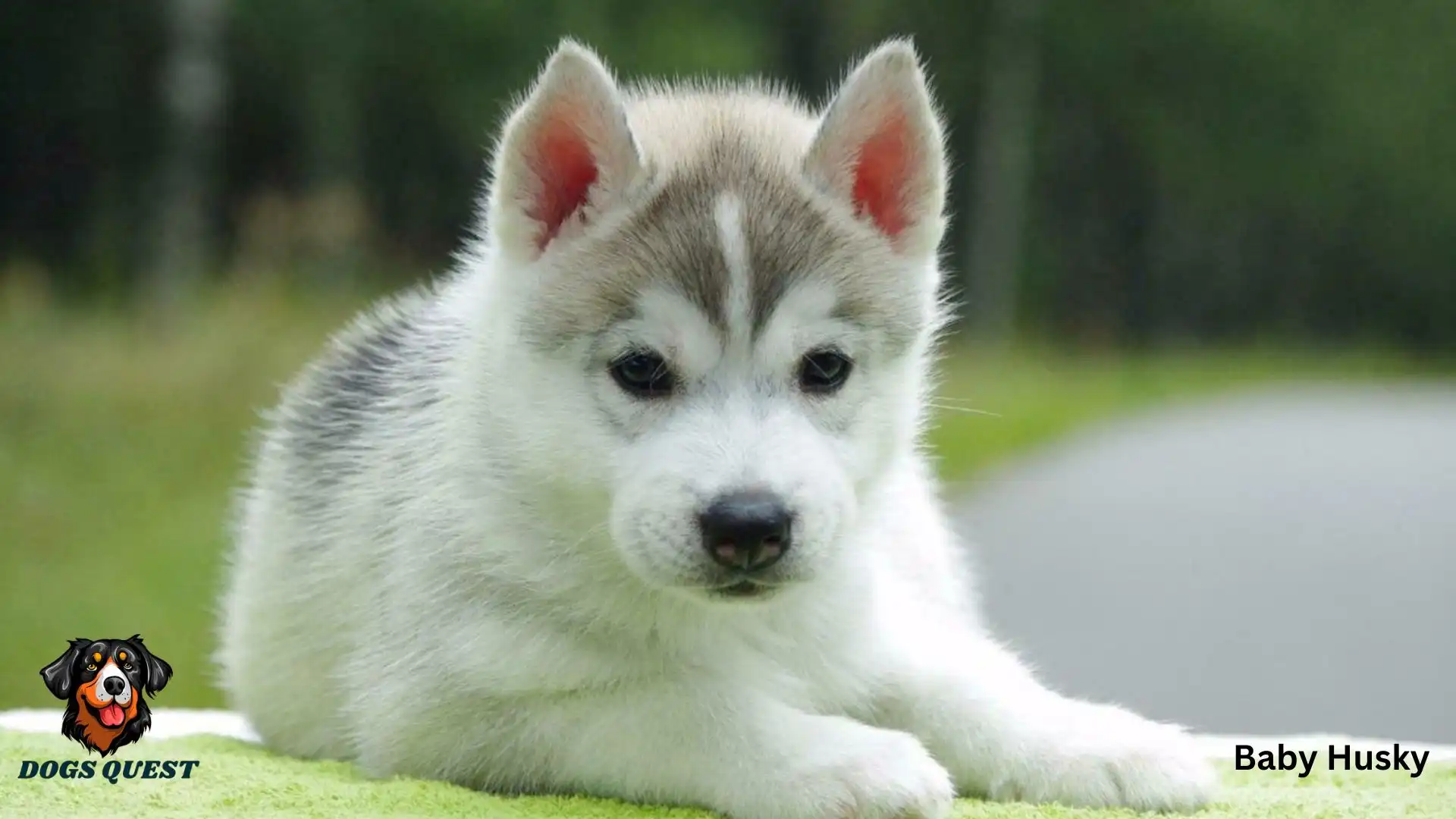Discover 15 amazing secrets on how to raise a baby husky, such as tips on care, training tricks, health facts and fun things every dog lover needs to know before adopting one.
Introduction to Baby Husky
There is no happier picture in the dog world than a baby husky. Their blue piercing eyes, fluffy coats, and their boyish personalities win hearts at the first sight. However, being a baby husky owner is not only cuddles and cute, but must be accompanied by duties and training as well as special care needs.
This guide will discuss 15 incredible secrets of taking care of babies that every future or present owner needs to know. This post will be about all you need to raise a happy, healthy and well behaved husky pup starting at their early stages of growth to feeding, training, socializing, and health.
What is so Special about a Baby Husky?
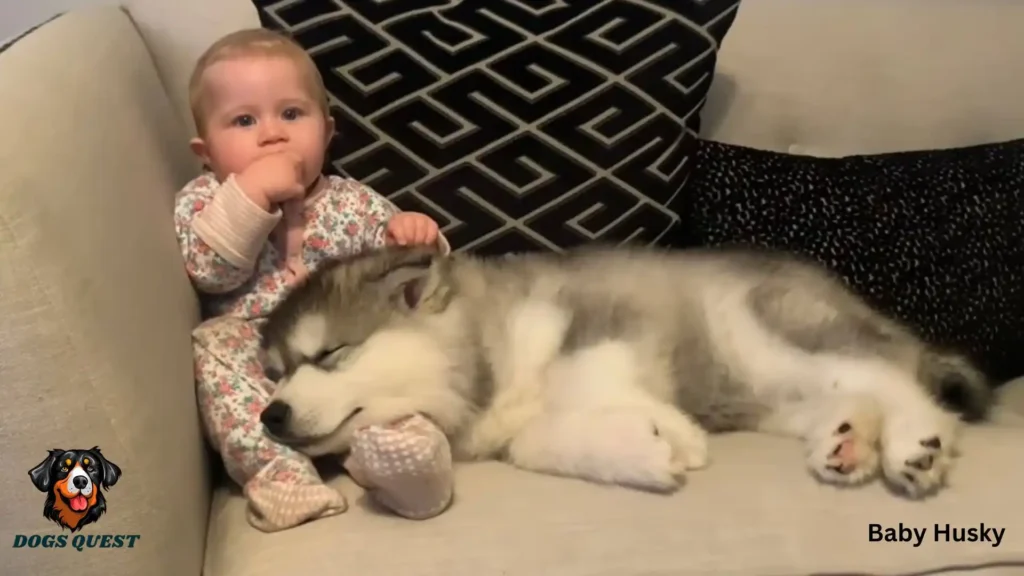
A baby is not simply a beautiful face. Huskies are intelligent, energetic, and pack animals that have unlimited energy. As children, they demonstrate premature independence but they also need to be heard and seen.
Husky Infants: Special Characteristics.
Blue or Heterochromia Eyes: most of the baby huskies are born with the most beautiful blue eyes or even with two different colored eyes.
Wolf-like Appearance: Wolves are made to look like small wolves because of their fluffy coat and erected ears.
Prankish Energy: It is their favorite to play with littermates, run, and wrestle.
Rapid Development: A baby husky develops fast, and it has to be fed and taken care of properly.
Baby Husky Growth Stages
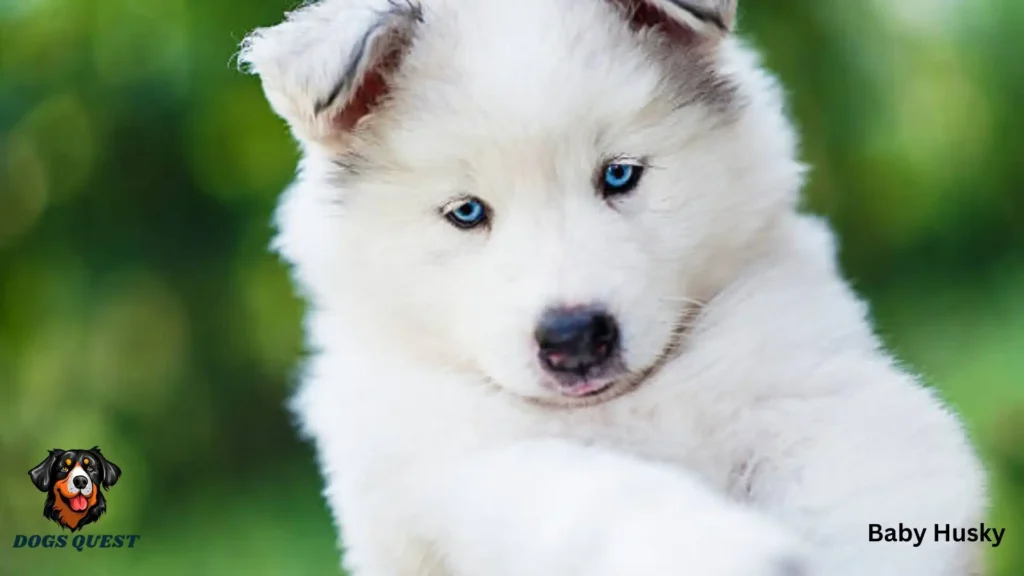
A baby goes through an assortment of stages as any puppy. Knowledge of these stages will assist you in giving care in the correct manner during each stage.
- Neonatal Stage (0-2 Weeks)
- Blind and deaf at birth
- Totally rely on their mother.
- Sleep most of the day
- Transitional Stage (2-4 Weeks)
- They open their eyes, and then they start walking blindly.
- Begin to react to sounds and smells.
- Show first signs of play
- Socialization Stage (4-12 Weeks)
- The most significant step of a baby husky.
- Learn littermate and human beings.
- Enter into primary training and toileting.
- Juvenile Stage (3-6 Months)
- Full of energy and mischief
- Begin to teethe–chew-toys are necessaries.
- Should have regular training so as not to develop bad habits.
- Adolescence (6-12 Months)
- Boundaries and independence Testing.
- Demand strict and affectionate discipline.
- Grow up to become their husky icon.
15 Best secrets of Baby Husky Every Breeder should know.
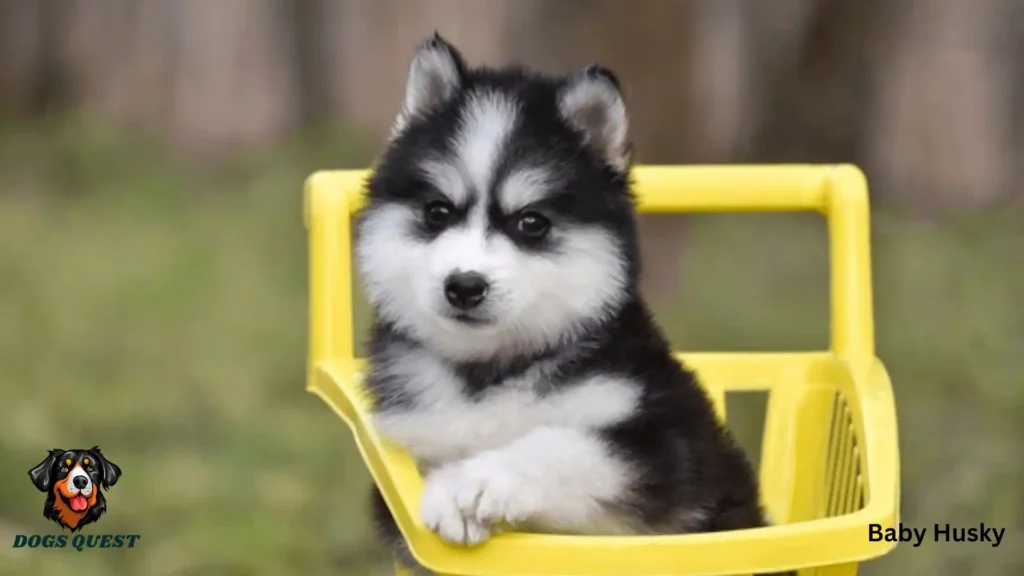
Baby Huskies are Unlimited in energy.
A child is not a normal lap dog. They require exercise on a daily basis, even when they are puppies. They may be destructive without an adequate amount of activity.
They Are Natural Runaway Slaves.
Huskies are known to escape out of fenced yards, digging under barriers, or climbing over these barriers. This behavior is exhibited at an early age and hence the supervision is important among baby huskies.
Socialization is Crucial
Without a good socialization process, then a baby husky may end up being shyness or too stubborn as an adult. Get them exposed to others, dogs and new surroundings at a tender age.
Husky Babies Learn Fast.
They are good training respondents but may be stubborn. Treats and praise are the best method of positive reinforcement.
Teething Can Be a Challenge
Baby huskies are excessive chewers at the age of 3-6 months. Give long lasting toys to save your shoes and furniture.
Baby Huskies Are Vocal
They do not make a lot of barking but howl, whine, and talk to reveal their feelings.
They Shed Early and Often
Huskies shed a lot even in the form of puppies. Loose fur can be handled by brushing them frequently.
Strong Pack Instinct
A baby husky thrives well in a domestic setup whereby they feel they belong to the pack. Being left to their own devices frequently can cause separation anxiety.
Mental stimulation is required of baby Huskies.
They are kept mentally alert by puzzle toys, training games and interactive play.
They Can Be Stubborn Eaters
Other infant huskies are finicky feeders. Protein combined with healthy fats make a balanced diet and is essential to growth.
Potty Training at an early age is necessary.
Huskies do not need a lot of encouragement to keep clean but constant practices and habit are the main factors of potty training.
They Don’t Like Hot Weather
Huskies are breeds that grow in cold climates. Shade and water your baby husky to keep him cool in summer.
Baby Huskies Form Deep Bonds
They are loving and faithful and develop intimate relationship with their family members very early in life.
The Uniformity of Action Industrioueth the Discipline.
Baby husky training is time consuming. Stable regulations can enable them to become virtuous adults.
It Is Worth the Hustle Baby Huskies Are Worth the Hustle.
It is not very easy to raise a baby husky but the love and happiness they give you make it all worth it.
Baby Husky Care Guide
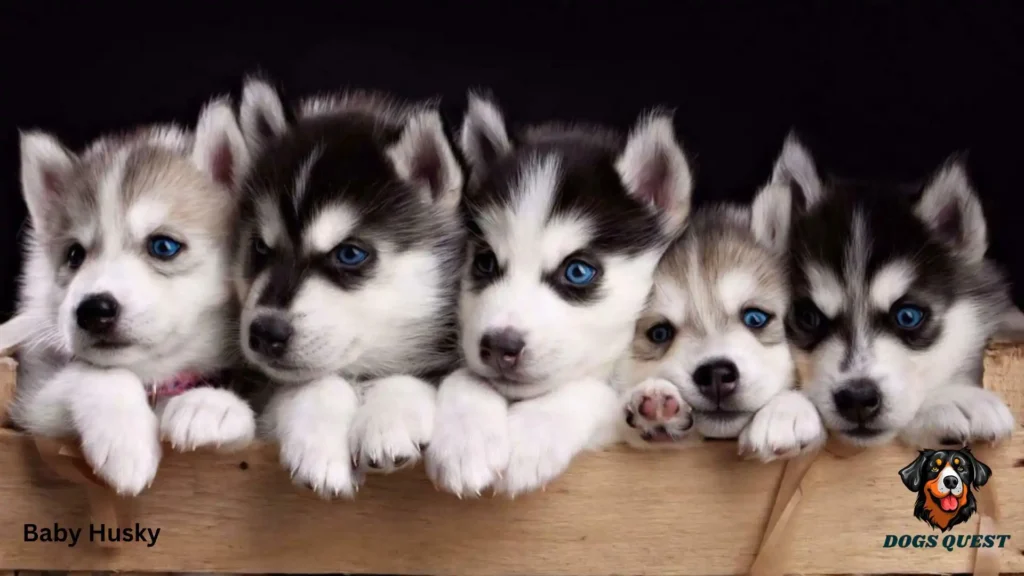
- Feeding Your Baby Husky
- 0-2 months: Breast milk or infant formula milk of the puppy.
- 2-6 months: Premium dog food containing added protein.
- 6-12 months: Slow transition of adult husky food.
Grooming Needs
- Brush twice or three times a week to control shedding.
- Wash up (huskies are hygienic) only when it is needed.
- Clean ears, polish nails, brush teeth.
Exercise Requirements
- Husky babies do not require long runs but short bursts of play.
- They should not over-exercise their growing joints.
- Playing in the backyard and walking about are best in safe conditions.
- Training Your Baby Husky
Potty Training Tips
- Stick to a schedule
- Bribe as soon as they leave the yard.
- Accidents should not be punished–be patient and constant.
- Obedience Training
- Begin with complicated movements: sit, stay, come.
- Take recitals, applause and reward.
- A baby husky should be taken in short fun sessions.
- Crate Training
- A crate gives a secure environment and aids in the process of potty training. Prepare it with bed and toys.
Husky in Babyhood: Common Health Problems.
Hip Dysplasia: Pay attention to the early symptoms of growing puppies.
Eye Conditions: Huskies develop cataracts and progressive retinal atrophy.
Parasites: Worming and inoculations are important.
Fun Facts About Baby Huskies
- Baby huskies are capable of running at the age of only 4 weeks old.
- When excited or when they hear sirens they usually sing.
- Other puppies with husky breeds are born with floppy ears, which eventually erect.
Final Thoughts on Baby Husky
The life of raising a baby husky is an adventure of love, energy and some difficulties in between. They are not easy to deal with, but they are beautiful, smart and loving, and therefore worth the struggle. Through adequate training, socialization and car.e, your baby husky will grow into a loyal companion and bring endless joy to your family.
FAQs About Baby Huskies
Q1: How big will my baby husky get?
Most huskies grow into medium-sized dogs, weighing 35-60 pounds.
Q2: Can baby huskies live in hot climates?
Yes, but they need proper cooling, hydration, and indoor shelter during hot weather.
Q3: Are baby huskies good with children?
Yes, they are playful and affectionate, but supervision is needed to ensure safe interactions.

